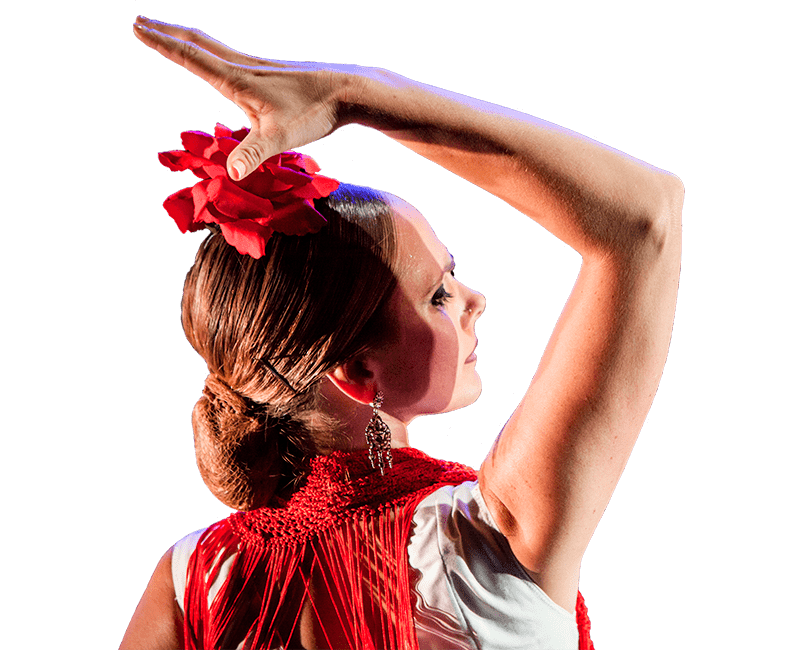Filtrar contenido

Palo flamenco: Malagueñas
Un palo flamenco rebosante de pasión y emoción en cada una de sus letras y bailes
En Teatro Flamenco Málaga queremos presentaros las malagueñas, un palo flamenco con gran historia y que lleva el nombre de nuestra ciudad.
Las malagueñas, son un palo con gran emoción y sentimiento en cada una de sus letras y bailes.
El origen de las malagueñas
Las malagueñas como palo flamenco, tiene sus raíces en Málaga. Este estilo musical se desarrolló a lo largo del tiempo, fusionando diferentes influencias culturales y musicales que convergen en nuestra región.
Para hablar sobre su origen, nos tenemos que remontar hasta el siglo XIX, cuando el flamenco comenzó a evolucionar y diversificarse en diferentes estilos o bien llamados “palos”. Aunque, las malagueñas provienen de los antiguos fandangos de Málaga y de otras provincias de Andalucía, hay diversas opiniones acerca de su origen. La primera de ella y una de las más fundamentadas, se relaciona con el cantaor Juan Breva y sus fandangos de mitad de siglo, a excepción del baile, el cual no se incluye en las malagueñas actuales.
Otra de las teorías más apoyadas por el público, ubican este palo flamenco a la figura del cantaor Juan Reyes, “El Canario”. En esta época, surgen desprendiéndose del fandango y adquieren independencia y un toque más lento y sostenido.
En este palo flamenco, la guitarra presenta un papel fundamental otorgando a las melodías gran libertad rítmica, que junto a la voz del cantaor flamenco ofrecen a este palo personalidad propia y reconocible a los pocos segundos de la salía y en la cual podemos ver como tras el paso del tiempo se prescinde del baile.
Cómo son las malagueñas
El cante de este palo flamenco, son coplas de cuatro o cinco versos octosílabos de roma cruzada y que se convierten en seis al repetirse el primer y tercer verso.
Con respecto a sus letras, suelen ser poéticas y llenas de sentimiento, en las que se narra la belleza y esplendor de los barrios y monumentos más emblemáticos de la ciudad de Málaga. Aunque también suelen aparecer letras de carácter trágico, como las que dejó Manuel Machado, el poeta que tanto interés mostró por el cante jondo y al que dedicó letras como:
“Las penas que tú me das
son y no son penas:
que tienen cositas malas,
y tienen cositas buenas”
De las letras más conocidas en el palo flamenco malagueño son “María de la O” y “Malagueña Salerosa”.
Estas canciones son un reflejo fiel de la cultura e historia malagueña y andaluza, además de una muestra más de la riqueza del flamenco.
Los intérpretes más destacados de las malagueñas
En este palo flamenco han destacado diversos cantaores, como por ejemplo Antonio Cruz García, más conocido como Antonio Moreno o el Niño de Mairena, cantaor sevillano de gran renombre. Este artista marcó un antes y un después en el arte flamenco, gracias a sus conocimientos y su constante aprendizaje. Una de sus letras más destacadas es “A mi me da el sentimiento”:
“De quererte toa mi vida
a mi me daba sentimiento
de yo quererte toa mi vida
pero yo paso el tormento
de que no eres mía
y así voy pasando el tiempo”
Por otro lado encontramos a Pepe de la Matrona, cantaor flamenco del barrio de Triana en Sevilla. Destacó por su pureza en su estilo tradicional, siendo un referente para los aficionados y una fuente de inspiración para aprender de los auténticos cantes. Además de destacar en las malagueñas, fue un emblema en las bulerías, cantiñas deblas, fandangos, peteneras, seguiriyas, serranas, soleás, tangos y tonás, entre otros. Como puedes comprobar, fue un prodigio en todos los palos del flamenco dejándonos auténticas obras maestras.
Si te has quedado con ganas de vivir en directo un espectáculo flamenco, te esperamos en Teatro Flamenco Málaga, un lugar de referencia para todos aquellos que buscan una experiencia única y pura del flamenco en directo.
En nuestro teatro buscamos representar el arte flamenco sin perder su identidad española y andaluza, es de gran importancia conservar y difundir fielmente su riqueza y variedad.
Te invitamos a vivir un momento único y lleno de emoción con un elenco repleto de artistas de primer nivel, ¡consigue aquí tus entradas!
